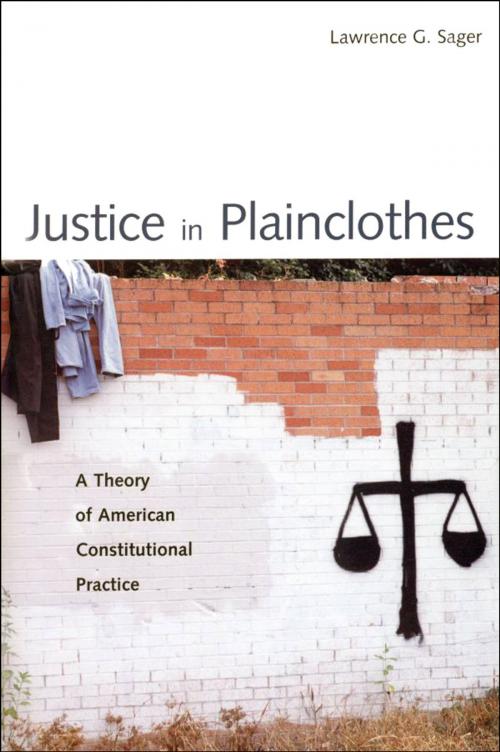Justice in Plainclothes
A Theory of American Constitutional Practice
Nonfiction, Reference & Language, Law, Constitutional| Author: | Professor Lawrence G. Sager | ISBN: | 9780300129199 |
| Publisher: | Yale University Press | Publication: | October 1, 2008 |
| Imprint: | Yale University Press | Language: | English |
| Author: | Professor Lawrence G. Sager |
| ISBN: | 9780300129199 |
| Publisher: | Yale University Press |
| Publication: | October 1, 2008 |
| Imprint: | Yale University Press |
| Language: | English |
In this important book, Lawrence Sager, a leading constitutional theorist, offers a lucid understanding and compelling defense of American constitutional practice. Sager treats judges as active partners in the enterprise of securing the fundamentals of political justice, and sees the process of constitutional adjudication as a promising and distinctly democratic addition to that enterprise. But his embrace of the constitutional judiciary is not unqualified. Judges in Sager’s view should and do stop short of enforcing the whole of the Constitution; and the Supreme Court should welcome rather than condemn the efforts of Congress to pick up the slack.
Among the surprising fruits of this justice-seeking account of American constitutional practice are a persuasive case for the constitutional right to secure a materially decent life and sympathy for the obduracy of the Constitution to amendment. No book can end debate in this conceptually tumultuous area; but Justice in Plainclothes is likely to help shape the ongoing debate for years to come.
In this important book, Lawrence Sager, a leading constitutional theorist, offers a lucid understanding and compelling defense of American constitutional practice. Sager treats judges as active partners in the enterprise of securing the fundamentals of political justice, and sees the process of constitutional adjudication as a promising and distinctly democratic addition to that enterprise. But his embrace of the constitutional judiciary is not unqualified. Judges in Sager’s view should and do stop short of enforcing the whole of the Constitution; and the Supreme Court should welcome rather than condemn the efforts of Congress to pick up the slack.
Among the surprising fruits of this justice-seeking account of American constitutional practice are a persuasive case for the constitutional right to secure a materially decent life and sympathy for the obduracy of the Constitution to amendment. No book can end debate in this conceptually tumultuous area; but Justice in Plainclothes is likely to help shape the ongoing debate for years to come.















